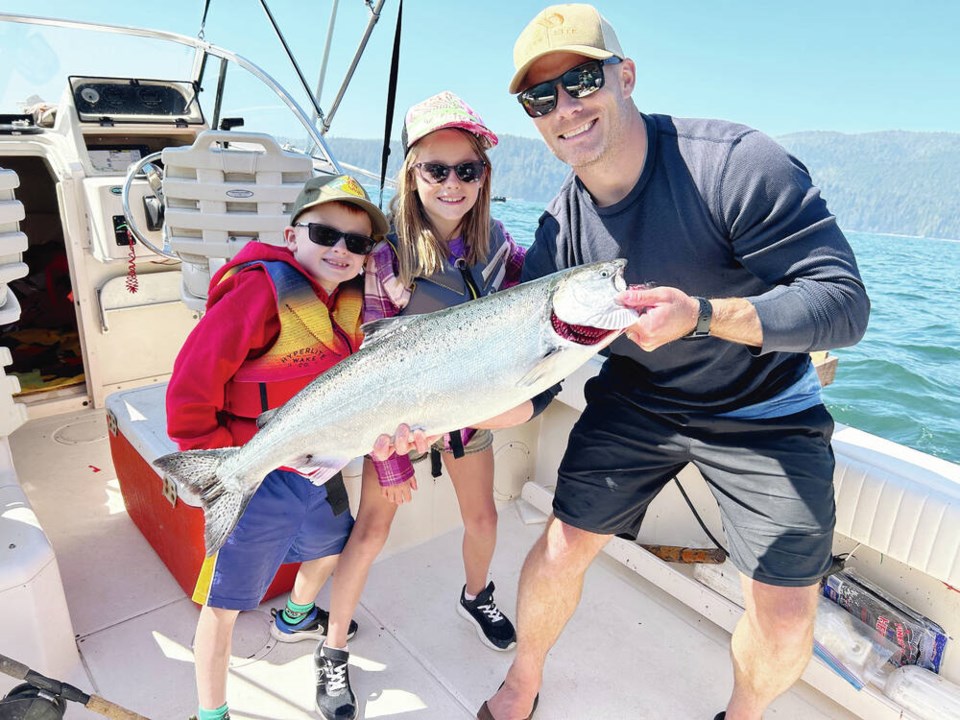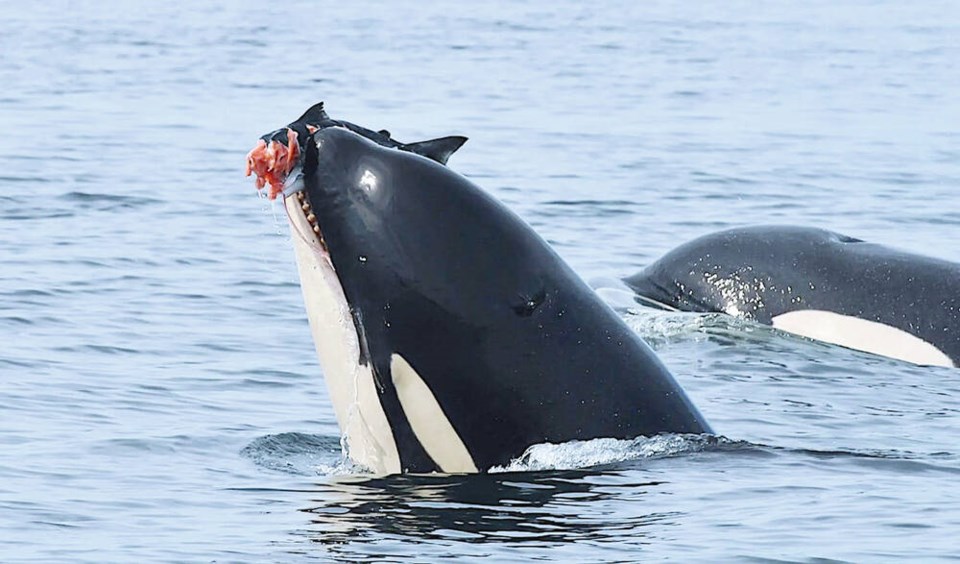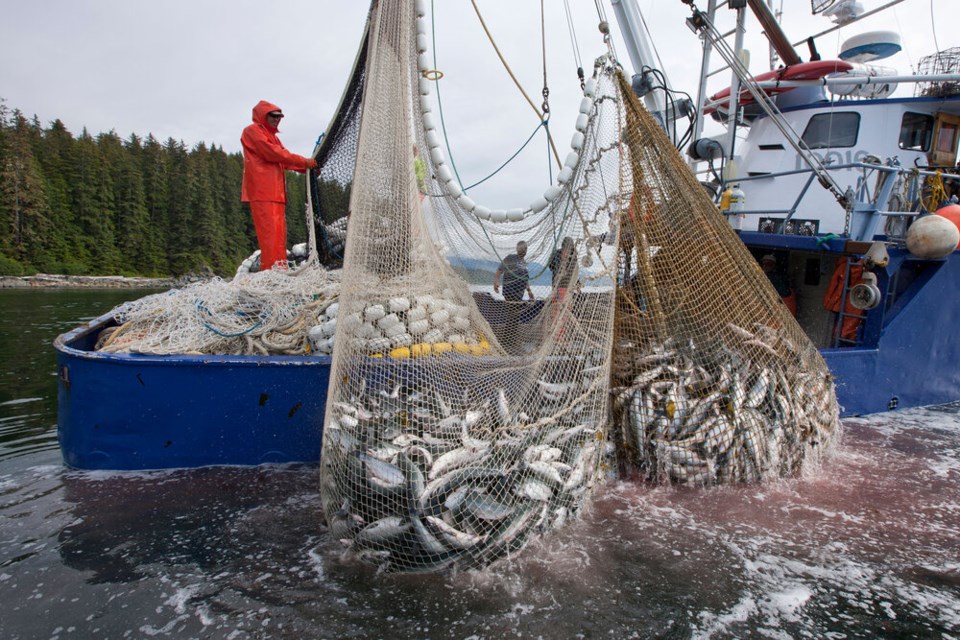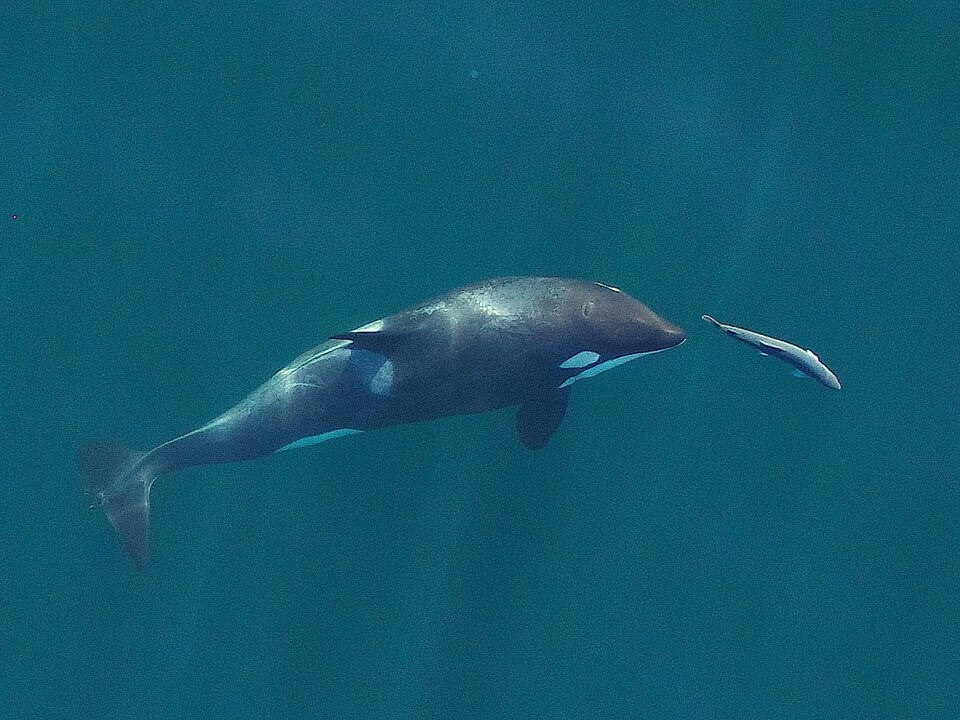A heated dispute over the closure of chinook fisheries to protect endangered killer whales has not divided anglers and conservationists as much as people might think.
A new study, published Thursday in the Conservation Science and Practice journal, found that while tensions remain high between the two opposing camps, many people on both sides of the issue show surprising common ground that could help find a resolution.
Lauren Eckert, a doctoral researcher at the University of Victoria who led the study, said her research found identity-based conflicts appeared to be fuelling at least some of the conflict.
“It’s often very tempting to collapse conflicts into ‘us versus them.’ There’s an in-group, people who agree with me, and an out-group, people who don’t,” she said. “It’s not that simple ... What we come away with is a much more complicated narrative.”
The dispute accelerated in 2019, when Fisheries and Oceans Canada (DFO) implemented restrictions on recreational chinook salmon fishing to ensure an adequate food supply for southern resident killer whales, which primarily feed on the fish species. Further closure protocols were rolled out in the Southern Gulf Islands in 2021.
DFO immediately started to receive what the study described as “substantial concerns” about the closures from anglers in coastal communities who engage in or rely on chinook fishing. Many of the concerns revolved on the belief that recreational fishing had a small impact on chinook, compared to the impacts of fish hatcheries and predation from seals and sea lions, the study found.

In the lead-up to the initial closures, Owen Bird, executive director for the Sport Fishing Institute of BC, told BIV the closures would have a big impact on lodges, charters, guides and other businesses in the sport-fishing sector.
“I don’t think even ‘devastating’ is too strong for these small communities that really rely on the sport-fishing economy,” Bird said at the time.
Conservationists, on the other hand, tended to cite a moral obligation to safeguard the whales and their unique culture and family groups, according to the report. While they tended to acknowledge multiple stressors affecting the whales, conservationists also tended to support closures based on research indicating that increasing the availability of chinook salmon is crucial for their survival, the report said.
Greg Taylor, a fisheries adviser and who at the time was a member of the salmon sub-committee of the Marine Conservation Caucus, was quoted in that same 2018 BIV story saying the closures were more about giving orcas room to feed than reducing chinook harvest levels.
“If you look at how many chinook are returning to the Fraser River right now, no one should be fishing—no one,” Taylor said.
Six years later, the dispute continued, with many on both sides reflecting their entrenched positions. Chris Bos, then-president of the South Vancouver Island Anglers Coalition, told the Times Colonist in February 2024 that the fishery closures in Port Renfrew “could be devastating.”
“If they keep closing everything down like they're doing, we'll be done,” Port Renfrew fishing guide Desmond Hatchard told the CBC two months later. “I won't even be able to sell my boat because nobody will want it.”
Social media, federal processes foment conflict
At a 2019 public meeting about southern resident killer whales in Victoria, Eckert remembers being struck by the palpable anger and hostility expressed by both anglers and conservationists.
“The energy in the room was so intense,” she said. “I left just so curious about how those tensions had been stoked.”
To better understand the root of the conflict, Eckert and a team of researchers from the University of Victoria and the Raincoast Conservation Foundation conducted an online survey of 727 British Columbians. Their goal was to move beyond the superficial debate over fishing policies and analyze the deeper roots of the conflict.
The researchers found that while most participants self-identified as either a conservation-supporter (53 per cent) or an angler (34 per cent), a substantial number identified with both identities. One-third of conservation-supporters also identified as anglers, and nearly half of anglers also identified as conservation supporters.
They also shared some similarities: both groups were found to distrust current federal management practices, and both sides expressed a mutual high regard for the environment and the importance of chinook salmon.
The finding directly contradicts public narratives that cast both sides as distinct and opposed.

More than a simple dispute over policy, the researchers found the clashes over fish and whales hinged on the respondents’ identity and core beliefs. Social media appeared to be making the situation worse, with online conversations appearing more hostile than survey responses.
The researchers’ conclusion: online platforms may be amplifying conflict narratives and hindering constructive dialogue.
Misty MacDuffee, a biologist at Raincoast Conservation Foundation who co-authored the study, said the conflict between the two sides has also been consistently made worse by the forums the federal government uses to inform its fisheries policies.
“As much as you want science to guide these processes, ultimately they’re political,” she said. “The loudest voice in the room prevails.”
As ocean ecosystems continue to change, Eckert said conflicts over wildlife and resources will likely increase. She said town-hall-style events might only make them worse.
To avoid that situation, Eckert said governments should seek a “paradigm shift” in how they engage with both sides, one that includes paid conflict facilitators to manage the conversation on a human-to-human level.
“Get people in a room and don’t start talking about fish until day five,” she said.
Finding a fisheries model for all sides
The conflict over chinook and southern residents has not been limited to B.C. In May 2023, a U.S. federal judge threw out a key authorization that allowed a fishery in southeast Alaska to intercept hundreds of thousands of chinook salmon before they could reach southern resident killer whales in B.C. and Washington state.
The successful return of 172,000 fish from Alaska would have represented a roughly five per cent boost in the availability of prey for the southern resident killer whales—just enough to allow the population to stabilize but not grow, according to an expert declaration presented in court.
Alaskan fishing groups fiercely opposed the ruling. And in July 2024, U.S. Ninth Circuit Court of Appeals partially reversed the decision, effectively allowing the southeast Alaska chinook troll fishery to continue. Three months later, the National Oceanic corrected deficiencies in its biological opinion identified in the 2023 court ruling to ensure it complied with the U.S. Endangered Species Act and the National Environmental Policy Act.

Following its release in October 2024, the Alaska Department of Fish and Game said the new biological opinion provides both “objective and measurable protections” for endangered chinook salmon stocks and “equitable consideration of impacts” of U.S. fisheries on southern resident killer whales. In the end, the department said the new regulations do not “fundamentally alter the status quo for southeast Alaska salmon fisheries.”
“Nothing changes on those interception fisheries from southeast Alaska,” said MacDuffee of the evolving U.S. chinook salmon policy. “We complain about Alaska. But we’re doing it as well.”
To diffuse the conflict, MacDuffee said the most effective fisheries model would prioritize local communities harvesting near a fish population's river of origin. That way, local fishers would have a vested interest in protecting the long-term survival of the species at a time when human pressures are colliding with climate change.
Such a policy would also give killer whales a chance to catch chinook before fishers do, and provide a mechanism to work with First Nations so all sides could ensure stocks remain sustainable for both animals and humans. She said the results of the latest study show an acceptable path forward might be closer than was previously thought.
“There’s much more common ground than we think,” said MacDuffee.




